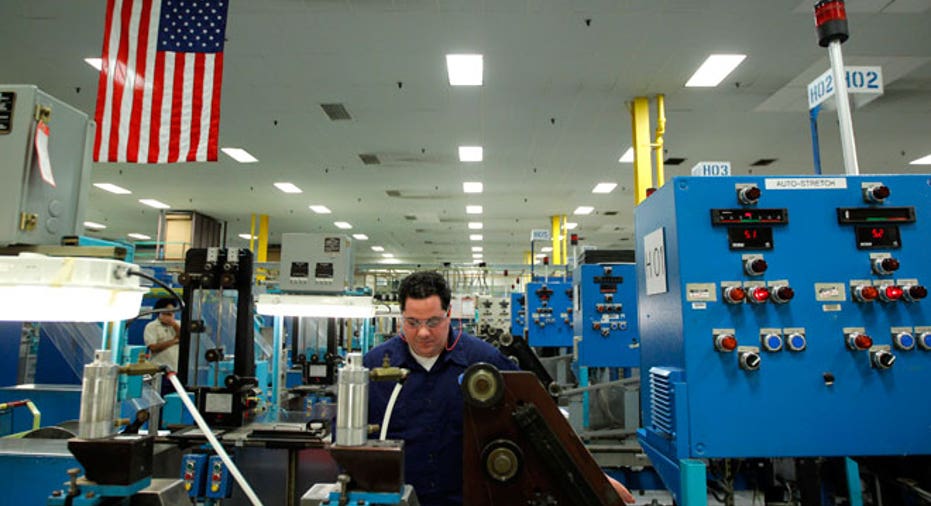Could Free-Trade Mean Bad News for Small Business?

As the United States and the European Union continue talks this week to potentially hammer out a free-trade agreement, experts are divided on what effect the agreement could have on small-business exporters in the United States.
While supporters of the collaboration say a free-trade agreement could add more than $100 billion to both the U.S. and the European economies, economist Prakash Sethi, a professor at Baruch College’s Zicklin School of Business and a visiting professor at Yale University, says he believes large businesses stand to gain the most.
“It’s very good for the large companies, because they are overseas anyways,” says Sethi. “They will benefit a lot.”
But when it comes to small businesses, Sethi is less confident a free-trade agreement would have a huge effect.
“Europe is not a third-world economy. You have Germany and the UK, and all these countries where small businesses are doing services that are equally smart. So, given the value of the dollar and the competitive advantage … they’re not going to gain a whole lot,” says Sethi.
Competition a Concern for Small Businesses
The United States Trade Representative’s fact sheet predicts a free-trade agreement would help improve the global competitiveness of small- and medium-sized enterprises.
However, the Small Business Exporters Association, an independent council of the National Small Business Association, found in a recent survey that 15% of small-business exporters say they’ve been hurt by free-trade agreements with other countries, thanks to increased competition from foreign businesses. And some argue this could happen on an even larger scale if an E.U.-U.S. free-trade agreement becomes reality, as Reuters reports one key EU interest would be an exemption on “Buy American” requirements on public works projects.
NSBA spokeswoman Molly Brogan says the easing of regulatory burdens will outweigh the negative impact of fiercer competition.
“We think 15% who say free trade has hurt their business is quite low, in terms of the other benefits,” says Brogan.
She also says an agreement may make small businesses more able to compete with larger competitors in the global marketplace.
“Having different rules and regulations for every different country, that are constantly changing, makes it really difficult for smaller companies, where the COO or CEO is likely handling a lot of the export business,” says Brogan.
Free trade, in comparison, makes it “easier and more streamlined, which will be very helpful … huge corporations have huge staff devoted to different markets, while smaller businesses don’t have that, making expanding challenging for them,” she says.
David Ickert, the chair of the NSBA and a small exporter of fire-fighting airplanes, agrees with Brogan. He says the elimination or simplification of regulations will be a “huge help” on the administrative side for his company, Air Tractor Inc., which has 280 employees.
Ickert is also hopeful, based on his conversations with other small exporters, that free trade could help small businesses in the U.S. introduce their products to more markets, helping them grow.
Winners and Losers in a Larger Marketplace
While some small businesses see the free-trade glass as all half-full, professor of international business at Baruch College Lilach Nachum says if it is established there will be winners and losers.
One huge sticking point for U.S. negotiators, Nachum says, is the regulations of agricultural products. The European Union has been deeply opposed to genetically modified crops; but GMO soy and corn is very common in the United States. If they reach an agreement where more of these crops will be exported to the E.U., she suggests, it would be a huge win for those exporters.
Nachum says another major industry that stands to benefit will be technology, in the form of cloud computing and social media.
“Especially right now, data privacy is such a hot issue that it’s almost difficult to touch it at all. We seem to be very separate in the way we view the digital economy,” she says.
Speaking more generally, Nachum says any exporter whose transportation costs are relatively low compared to the value of the product will be a winner.
“Trade costs are made of two major elements. One is nature-made – the transportation cost of moving things from one place to another – and the other is politician-made, with barriers,” she explains. So when those political barriers are moved, she says, companies with relatively low transportation costs will profit from expanding widely.
“Pharmaceuticals, for example: Transporting drugs costs nothing compared to the value,” says Nachum.
But manufacturers of large, heavy equipment might not be in the same boat.
“Where transportation costs are high, there will be very little impact,” says Nachum.



















